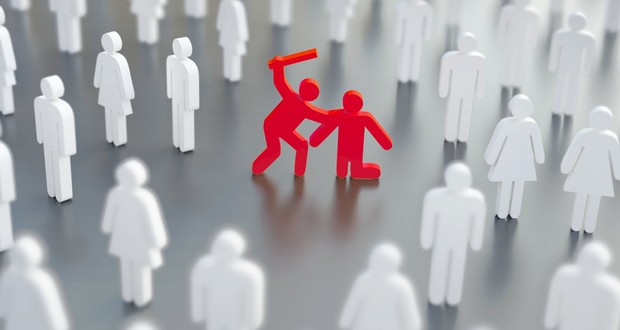1Reverse psychology

Reverse psychology is also known as reactance is the urge to do the opposite of what someone wants you to do out of a need to resist a perceived attempt to constrain your freedom of choice. In fact, reactance theory is sometimes called the “forbidden fruit” theory.
2Halo Effect

Halo effect is otherwise known as Horn’s Effect, devil’s and reverse halo effect is where individuals, brands or other things judged to have a single undesirable trait are subsequently judged to have many poor traits. Allowing a single weak point or negative trait to influence perception of the person, brand or other thing in general. Simplifying it, when we consider a person bad in one area, we are likely to make a similar evaluation in other areas.
3Pygmalion effect

Pygmalion effect refers to the phenomenon in which the greater the expectation placed upon people, often children or students and employees, the better they perform. The Pygmalion effect is a form of self-fulfilling prophecy, it is a prediction that causes itself to become true. In this respect, people with poor expectations internalize their negative label, and those with positive labels succeed accordingly. For example, you assume you are going to perform badly at your test today so you decrease the effort and end up doing poorly. If I think my relationship with my significant other is going to fail, I start acting differently, pulling away emotionally, which may cause it to fail.
4Déjà vu

Déjà vu literally meaning “already seen”, is the phenomenon of having the strong sensation that an event or experience currently being experienced has already been experienced in the past. The experience is usually accompanied by a strong sense of familiarity and a sense of eeriness, strangeness, or weirdness. The “previous” experience is usually attributed to a dream, but sometimes there is a firm sense that it has truly occurred in the past.
5Overview effect

Of all the psychological effects ever named, observed, and studied, the overview effect has to be in the running for the least common. Only astronauts have ever experienced the conditions that lead to it. When astronauts in orbit or on the surface of the moon first see the Earth in its entirety, many reports feeling a deep sense of scale and perspective that has come to be called the overview effect. The effect can be deeply moving, confusing, inspiring, and emotionally challenging, as a view of the entire Earth changes one’s perspective in a profound way. Astronauts have returned home with a renewed sense of the way we’re all connected, of the relative meaninglessness of cultural boundaries, and a desire to take care of the Earth’s environment.
6Pratfall effect

In social psychology, the pratfall effect is the tendency for attractiveness to increase or decrease after an individual makes a mistake, depending on the individual’s perceived ability to perform well in a general sense. A perceived able individual would be, on average, more likable after committing a blunder, while the opposite would occur if a perceived average person makes a mistake.
7Bystander effect

Bystander effect also known as bystander apathy, is a social psychological phenomenon that refers to cases in which individuals do not offer any means of help to a victim when other people are present. The probability of help is inversely related to the number of bystanders. In other words, the greater the number of bystanders, the less likely it is that any one of them will help.
Latest FactRepublic Video:
15 Most Controversial & Costly Blunders in History
8Spotlight effect

Spotlight effect is the tendency to overestimate the amount that other people notice your appearance or behavior. The reasoning behind the spotlight effect comes from the innate tendency to forget that although one is the center of one’s own world, one is not the center of everyone else’s. Many professionals in social psychology encourage people to be conscious of the spotlight effect and to allow this phenomenon to moderate the extent to which one believes one is in a social spotlight.
9Focusing effect

Anchoring or Focusing effect is a cognitive bias that describes the common human tendency to rely too heavily on the first piece of information offered (the “anchor”) when making decisions. During decision making, anchoring occurs when individuals use an initial piece of information to make subsequent judgments. For example, the initial price offered for a used car sets the standard for the rest of the negotiations, so that prices lower than the initial price seem more reasonable even if they are still higher than what the car is really worth.
10Cocktail party effect

The cocktail party effect is the phenomenon of being able to focus one's auditory attention on a particular stimulus while filtering out a range of other stimuli. The effect enables people to talk in noisy locations. For example, when conversing at a musical concert, people can listen to the band and understand a friend all at the same time. They can also simultaneously ignore loud noises. Nevertheless, if someone calls out your name from across the room, people will notice.




